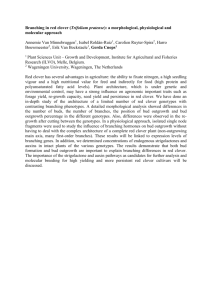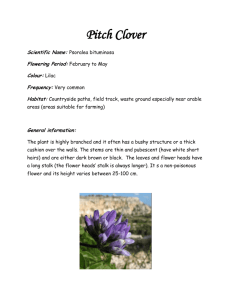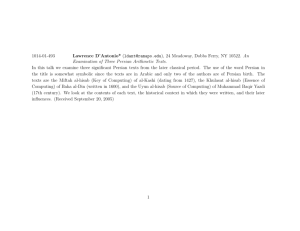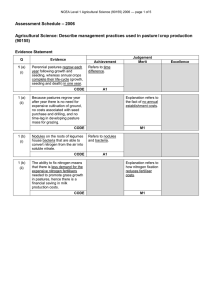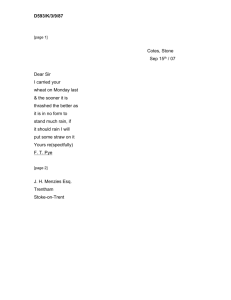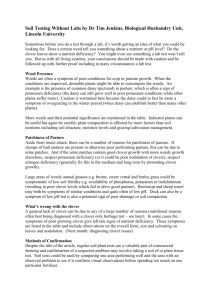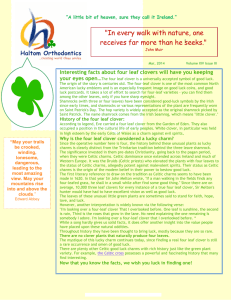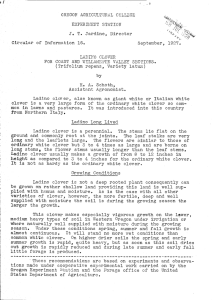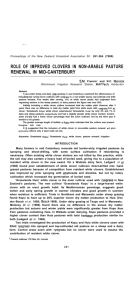product information - Upper Murray Seeds
advertisement
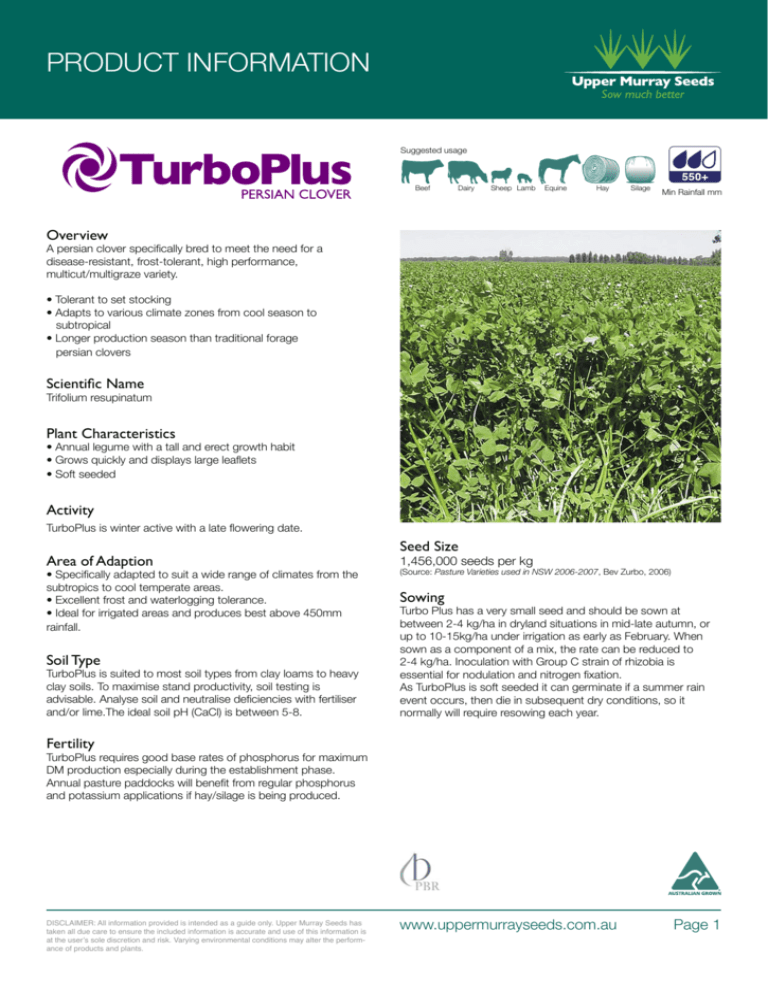
PRODUCT INFORMATION Suggested usage Beef Dairy Sheep Lamb Equine Hay Silage Min Rainfall mm Overview A persian clover specifically bred to meet the need for a disease-resistant, frost-tolerant, high performance, multicut/multigraze variety. • Tolerant to set stocking • Adapts to various climate zones from cool season to subtropical • Longer production season than traditional forage persian clovers Scientific Name Trifolium resupinatum Plant Characteristics • Annual legume with a tall and erect growth habit • Grows quickly and displays large leaflets • Soft seeded Activity TurboPlus is winter active with a late flowering date. Area of Adaption • Specifically adapted to suit a wide range of climates from the subtropics to cool temperate areas. • Excellent frost and waterlogging tolerance. • Ideal for irrigated areas and produces best above 450mm rainfall. Soil Type TurboPlus is suited to most soil types from clay loams to heavy clay soils. To maximise stand productivity, soil testing is advisable. Analyse soil and neutralise deficiencies with fertiliser and/or lime.The ideal soil pH (CaCl) is between 5-8. Seed Size 1,456,000 seeds per kg (Source: Pasture Varieties used in NSW 2006-2007, Bev Zurbo, 2006) Sowing Turbo Plus has a very small seed and should be sown at between 2-4 kg/ha in dryland situations in mid-late autumn, or up to 10-15kg/ha under irrigation as early as February. When sown as a component of a mix, the rate can be reduced to 2-4 kg/ha. Inoculation with Group C strain of rhizobia is essential for nodulation and nitrogen fixation. As TurboPlus is soft seeded it can germinate if a summer rain event occurs, then die in subsequent dry conditions, so it normally will require resowing each year. Fertility TurboPlus requires good base rates of phosphorus for maximum DM production especially during the establishment phase. Annual pasture paddocks will benefit from regular phosphorus and potassium applications if hay/silage is being produced. DISCLAIMER: All information provided is intended as a guide only. Upper Murray Seeds has taken all due care to ensure the included information is accurate and use of this information is at the user’s sole discretion and risk. Varying environmental conditions may alter the performance of products and plants. www.uppermurrayseeds.com.au Page 1 PRODUCT INFORMATION Disease and Pest Management Monitor regularly during emergence for insect damage from pests such as red-legged earth mite (RLEM), aphids and lucerne flea and spray if required. TurboPlus is highly resistant to leaf disease, especially rust. Persian clover is highly tolerant of clover scorch and resistant to subterranean clover rootrot. Weed Control TurboPlus is very competitive as both a seedling and established plant, so make sure your sowing rates aid this competitive nature. Always use knockdown herbicide to ensure you are sowing into a clean seedbed. Monitor for post-emergent weeds and spray as required. Always consult your Upper Murray Seeds agronomist prior to spraying as herbicide tolerances can differ between persian clover varieties. “I chose Turbo Plus to complement the grazing and bulk fodder production offered by Awesome. We graze twice and then lock up pasture for silage. With good November rain the pasture came back amazingly well. Turbo’s regrowth is very impressive. My father is totally blown away by Turbo Plus – he has never seen a clover perform like it in 40 years of dairy farming in the region. It’s simply sensational!” Laurie Baccega, Morwell, VIC Grazing Do not graze TurboPlus until the plant is well anchored and root depth is established. Carry out a quick in-paddock ‘grab test’ by hand to ensure stock cannot pull plants out of the ground. TurboPlus persian clover recovers well from grazing providing it is allowed to attain complete ground cover before being re-grazed. Feed Quality TurboPlus is commonly used in high density legume mixes for high-protein feed, and produces hay with a high feed value. Animal Health Make sure you follow the normal bloat minimisation proceedures. Sowing persian clover in a mixture with tetraploid ryegrass or oats will reduce the risk of bloat. Although some varieties claim not to cause bloat, care should be taken where persian clover forms a large proportion of the feed base. To optimise livestock weight gain and health, ensure livestock are vaccinated and drenched. To prevent nutritional problems, make gradual diet changes when introducing hungry stock to lush pastures. Contact an Upper Murray Seeds agronomist for more information. DISCLAIMER: All information provided is intended as a guide only. Upper Murray Seeds has taken all due care to ensure the included information is accurate and use of this information is at the user’s sole discretion and risk. Varying environmental conditions may alter the performance of products and plants. www.uppermurrayseeds.com.au Page 2

